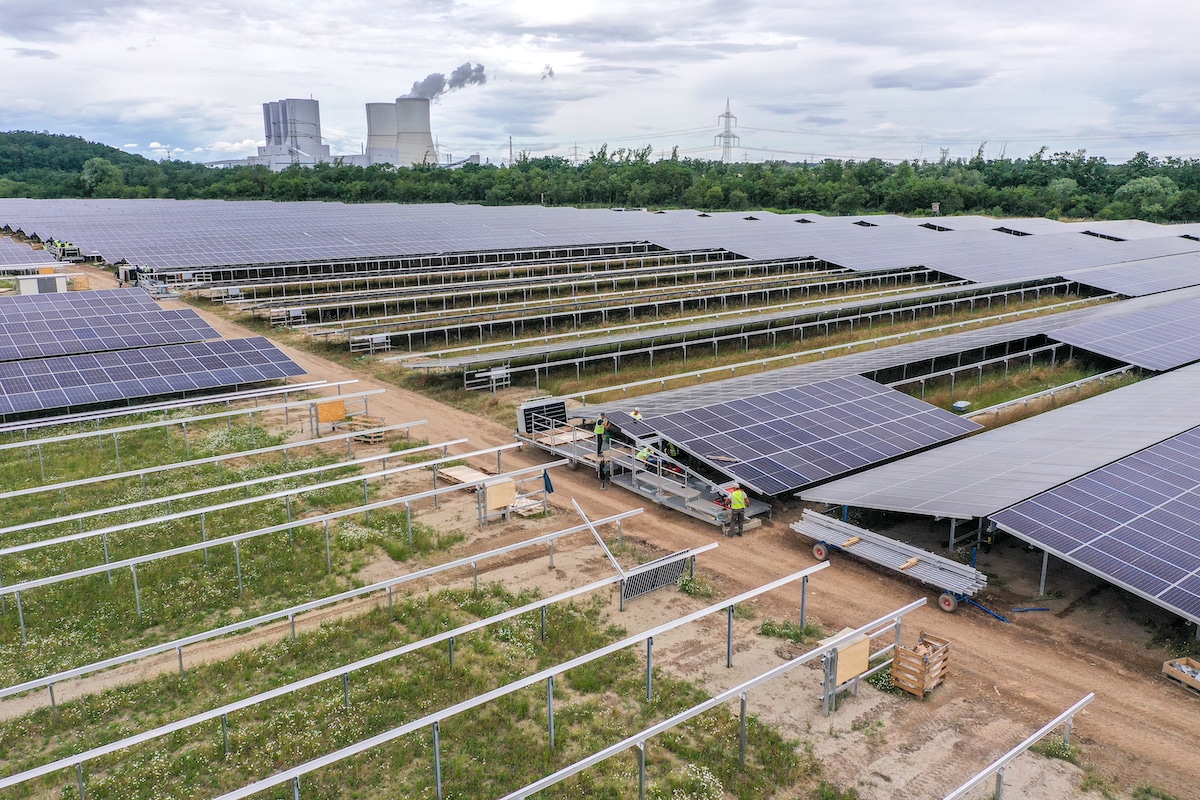Germany on Track to Meet Over 50% of Energy Demand With Renewables This Year

 Why you can trust us
Why you can trust us
Founded in 2005 as an Ohio-based environmental newspaper, EcoWatch is a digital platform dedicated to publishing quality, science-based content on environmental issues, causes, and solutions.
Germany is likely to generate enough energy from renewables to meet more than 50% of its energy demand by the end of this year, as the country’s Economy Minister Robert Habeck announced at a conference held by the Heinrich Böll Foundation on Monday.
As of 2022, Germany’s solar photovoltaic capacity was at about 67 megawatts, followed by about 58 megawatts of capacity from onshore wind energy and about 8 megawatts from offshore wind, according to a February 2023 report from the Federal Ministry of Economic Affairs and Climate Action.
As Reuters reported, Habeck noted at the conference that Germany expected to reach its goal of 9 gigawatts of solar capacity for the year, and that the country had already met its goal for the year for onshore wind energy by the end of July.
However, offshore wind development has been more challenging, primarily because of supply chain issues, as Yale Environment 360 reported. In the first six months of 2023, offshore wind capacity grew to 8,385 megawatts. However, the country has a target to reach 30,000 megawatts of offshore wind capacity by 2030.
Wind energy development in Germany has also been stalled by delayed permit applications, as projects require permitting to transport the turbines. With over 15,000 backlogged applications as of early September, projects have been delayed. Transporting turbine components may require about 60 permits, while transporting a wind turbine requires around 150 permits, Reuters reported.
“I can’t apply for a transport permit and tomorrow say: ‘I’ll drive the green truck instead of the red’, because a new permit is needed,” Kai Westphal, a regional head of transport at Vestas, told Reuters.
Still, GlobalData, a data analytics company, predicted offshore wind energy capacity to quadruple and onshore wind capacity to double by 2035.
A report from the Federal Network Agency released earlier this year noted that Germany could meet its energy demand with clean energy, even by quitting coal earlier than anticipated.
“The report by the Federal Network Agency approved by the cabinet today shows that electricity demand can be reliably met at any time between 2025 and 2031,” Habeck said at the time. “This also applies if electricity consumption increases significantly due to new consumers such as electric vehicles and heat pumps and the phase-out of coal takes place by 2030.”
Although 2023 is expected to be the first year that Germany meets more than half of its energy demand with renewable energy sources, Habeck said the country is still not on track to meet its goal of meeting 80% of energy demand with renewables by 2030.
“We won’t get there at the current pace,” Habeck said.
Subscribe to get exclusive updates in our daily newsletter!
By signing up, you agree to the Terms of Use and Privacy Policy & to receive electronic communications from EcoWatch Media Group, which may include marketing promotions, advertisements and sponsored content.

 233k
233k  41k
41k  Subscribe
Subscribe 



